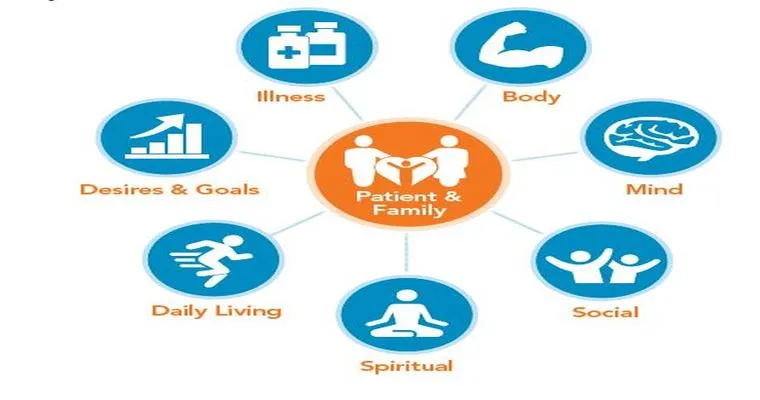"Palliative care" is a specialized medical approach that focuses on providing relief from the symptoms and stress of serious illnesses. It aims to improve the quality of life for both patients and their families. This type of care is not limited to end-of-life situations; instead, it can be integrated at any stage of a disease, offering support alongside curative treatments. By addressing the "physical", "emotional", and "spiritual" needs of patients, palliative care plays a crucial role in the healthcare system.
Palliative care is often confused with hospice care, but there are key differences. While hospice care is specifically for patients nearing the end of life, palliative care can be provided at any stage of a serious illness. This means that individuals undergoing treatment for conditions such as cancer, heart disease, or chronic respiratory conditions can benefit from palliative care services.
One of the primary goals of palliative care is to manage "pain" and other distressing symptoms. This can include managing nausea, fatigue, depression, and anxiety, which are common among patients facing serious illnesses. A team of healthcare professionals, including doctors, nurses, social workers, and chaplains, works together to create a customized care plan that addresses the unique needs of each patient.
In addition to symptom management, palliative care provides emotional and psychological support. Serious illnesses can be overwhelming for both patients and their families. Palliative care teams offer counseling and support services to help individuals cope with the emotional burden of their diagnosis. This holistic approach recognizes that mental and emotional well-being is just as important as physical health.
Communication is a vital component of palliative care. The healthcare team engages in open and honest discussions with patients and their families about treatment options, goals of care, and preferences. This ensures that patients are informed and empowered to make decisions that align with their values and wishes.
Access to palliative care can significantly improve the quality of life for patients. Studies have shown that patients receiving palliative care often experience reduced pain, improved mood, and even longer survival rates. Moreover, families also benefit from palliative care through better communication and support, which can ease the burden of caregiving.
Finding palliative care services can be straightforward. Many hospitals and health systems have specialized palliative care teams, and numerous community organizations offer resources and support. It is important for patients and families to discuss palliative care options with their healthcare providers to find the best fit for their needs.
In conclusion, "palliative care" is a vital aspect of comprehensive healthcare that enhances the quality of life for patients with serious illnesses. By focusing on "symptom management", emotional support, and effective communication, palliative care teams help patients navigate their health journeys with dignity and compassion. Whether for curative treatment or end-of-life care, palliative care is an essential resource that should not be overlooked.





